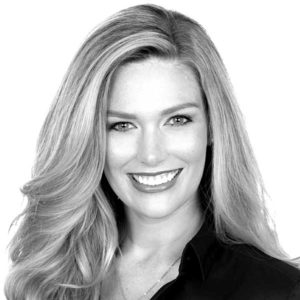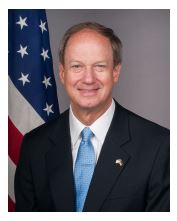October 16, 2020
A Reflection on Our Recent Webinar
By Vanessa Wieliczko, Director of Investments at HoyleCohen
As we near the upcoming election, many have asked how it’s likely to affect the markets. Recently John Emerson of Capital Group joined HoyleCohen’s Director of Investments, Vanessa Wieliczko, CFA, CAIA, CFP® to address this and other pressing questions. John’s professional background uniquely positions his outlook on the political landscape and his view of the potential market impact. In addition to spending nearly 20 years cumulatively in financial services with Capital Group, John served as the U.S. Ambassador to Germany from 2013-2017 and spent 4 years serving as Deputy Assistant to the President under President Bill Clinton.
While this feels like an unusual time, John noted that every election comes with its own unique circumstances. When it comes to investing, it’s “time in the market” not “timing the market” that has shown value historically. The outcomes of elections may feel “all determining”, but the reality is that actual policy changes will be slow at best, and the market is impacted by a multitude of related, but complexly intertwined factors. Determining the direction of the market over a one-year period can be challenging – in fact economists and analysts often get it wrong. Trying to time short-term moves is even more futile. The positive news is that markets have historically trended up over time regardless of which political party is in power, and we don’t believe that fundamental truth has changed. The best recommendation you can receive is to set a long-term strategic allocation with the support of a trusted Advisor, and to stick with it unless or until your individual circumstances change. To read more about investing in an election year, click here.
Campaign promises and the reality of what can actually be enacted often diverge. The outcome of the Senatorial races, rather than who sits in the oval office, will be a more dominant factor impacting what is legislated and how quickly. We’ll be keeping our eye on potential shifts in tax policy (corporate, personal and estate tax) and the regulatory environment.
It’s hard to predict which presidential candidate will come out on top. The polls in 2016 were inaccurate to say the least. There’s reason to believe that adjustments have been made but it’s important to recognize the embedded standard error in required assumptions like voter turnout. A contested election is all but expected at this point. What’s more, the expectation that a greater percentage of democrats plan to vote by mail could skew early results. This uncertainty may likely contribute to volatility in the markets for several weeks surrounding the election.
Arguably, we’ve already seen multiple iterations of the proverbial “October surprise” – the passing of Supreme Court Justice Ruther Bader Ginsberg, and the COVID-19 diagnosis of President Trump and other prominent figures to name a few. Market participants will be closely watching the possible emergence of a second wave at home and abroad, progress of therapeutic treatments and vaccines, reported unemployment and GDP numbers, and the impact on consumer and business confidence.
While we are hopeful that we will get past the health impacts of COVID-19, there may be some permanent effects of this pandemic. We could see sustained shifts in the global economy as it relates to trade and diplomacy. Supply shortages have illuminated national security risks and caused businesses to rethink supply chains. The “just in time” inventory management preached by business schools may be shifting to a “just in case” mentality. We may see a departure from further globalization, in favor of increased regionalization, with manufacturing facilities relocated and diversified. Regardless of which candidate takes the white house, we’re likely to see a continuation of the “tough on China” policy (though the approach may be slightly different). Growth in technology adoption and remote working jumped exponentially over a short period by necessity. These trends may result in continued productivity gains.
In response to the pandemic induced recession, we’ve seen substantial monetary and fiscal support. The Fed has communicated a commitment to keeping rates near zero for the foreseeable future and a higher degree of flexibility around inflation. We’ll continue to take a long-term view, investing diligently on your behalf, never chasing fads but remaining open to new opportunities.
As stated above, the best recommendation you can receive regarding investments and savings is to set a long-term strategic allocation with the support of a trusted Advisor, and to stick with it unless or until your individual circumstances change. If you or someone you know would benefit from speaking with a HoyleCohen Advisor, we encourage you to reach out.
Wishing you health and happiness.
Your Hosts:
John Emerson, Vice Chairman, Capital International, Inc.
John Emerson rejoined Capital Group in May 2017 as Vice Chairman of Capital International, Inc., following a four year leave to serve as the US Ambassador to Germany. With more than $1.5 trillion under management, Capital Group is amongst the largest investment managers in the world.
In 2015 John was awarded the State Department’s Susan M. Cobb Award for Exemplary Diplomatic Service, which is given annually to one non-career ambassador, and in 2017 he was awarded the CIA Medal and the U.S. Navy’s Distinguished Public Service award. Prior to accepting the ambassadorial posting, John was president of Private Client Services for the Capital Group Companies. Before joining Capital, he was deputy assistant to President Clinton where he coordinated his economic conferences, served as the president’s liaison to the nation’s governors, and led the administration’s efforts to obtain congressional approval of the GATT Uruguay Round Agreement and the extension of China’s MFN trading status. Additionally, he was appointed by President Obama to serve on his Advisory Committee for Trade Policy and Negotiations.
Before working in the Clinton White House, John served as Los Angeles Chief Deputy City Attorney, and was a partner in the law firm of Manatt, Phelps, Rothenberg, and Phillips. John holds an honorary doctor of laws degree from Hamilton College, a juris doctor degree from the University of Chicago and a bachelor’s degree in philosophy from Hamilton College. John is based in Los Angeles.

Vanessa Wieliczko, CFA, CAIA, CFP®: Director of Investments, HoyleCohen
Vanessa Wieliczko oversees the investment department and leads the Investment Committee at HoyleCohen. She joined the firm in 2008 and was instrumental in the development of the firm’s CorePlus approach, a unique blend of traditional and alternative assets.
Vanessa holds a Bachelor’s degree in business administration and management with a concentration in international finance from Boston University. Driven in pursuit of excellence, she obtained her Chartered Financial Analyst (CFA), Chartered Alternative Investment Analyst (CAIA), and Certified Financial Planner (CFP®) designations all before turning 30. Active in the community, Vanessa serves on the board as President of CFA Society San Diego, a group of more than 500 investment and planning professionals.


